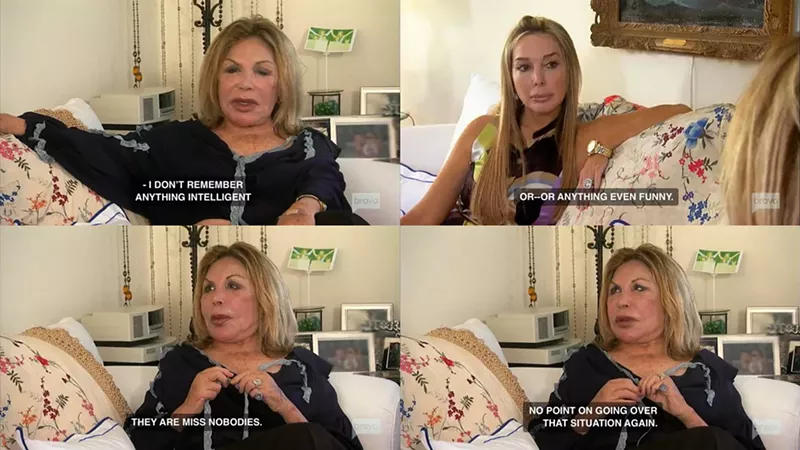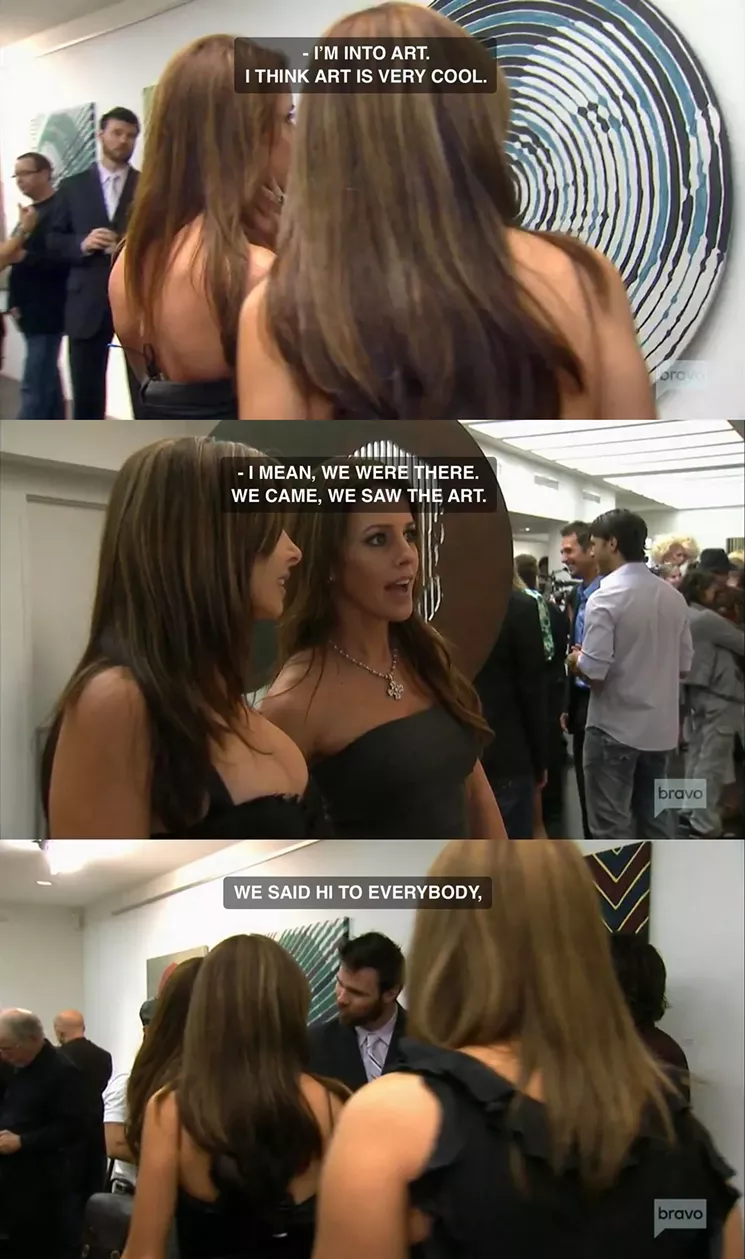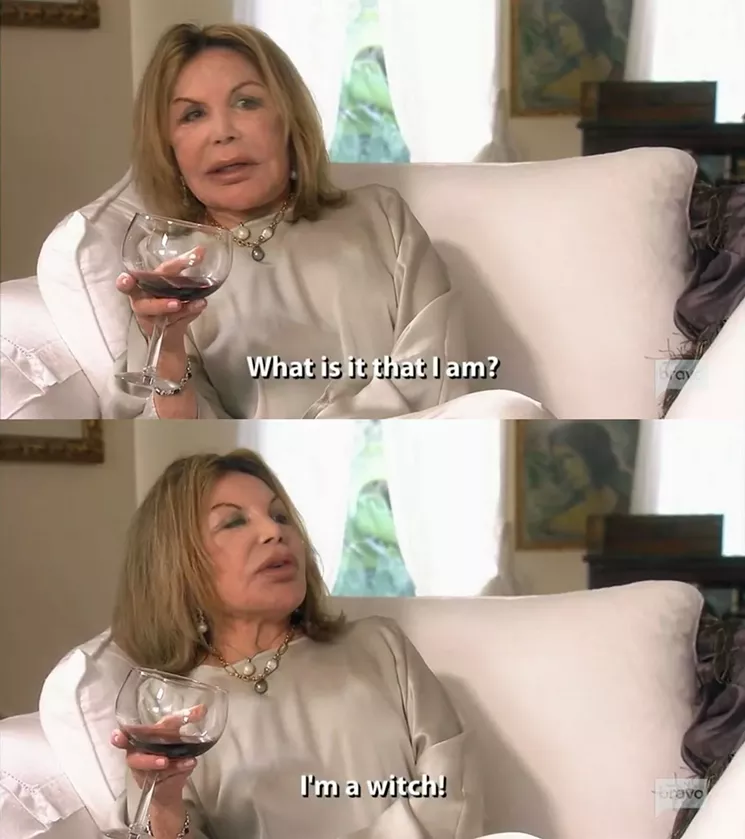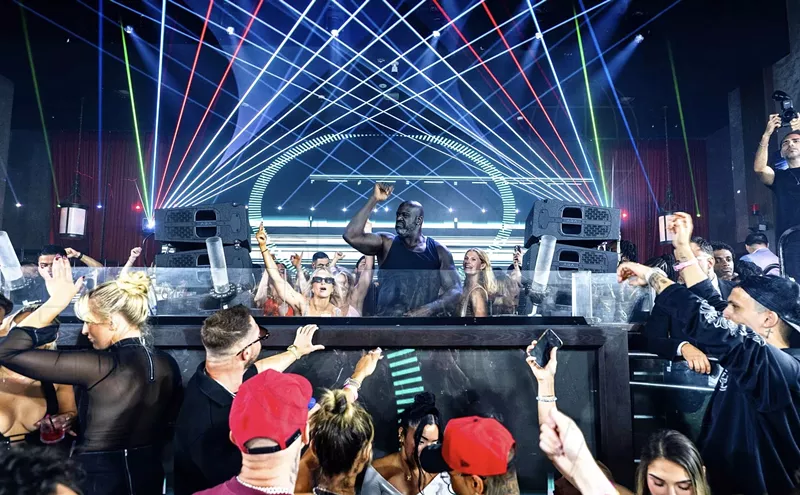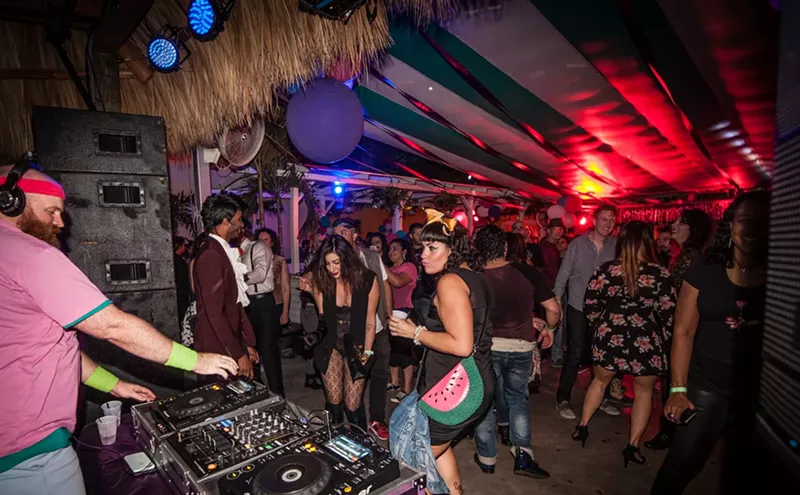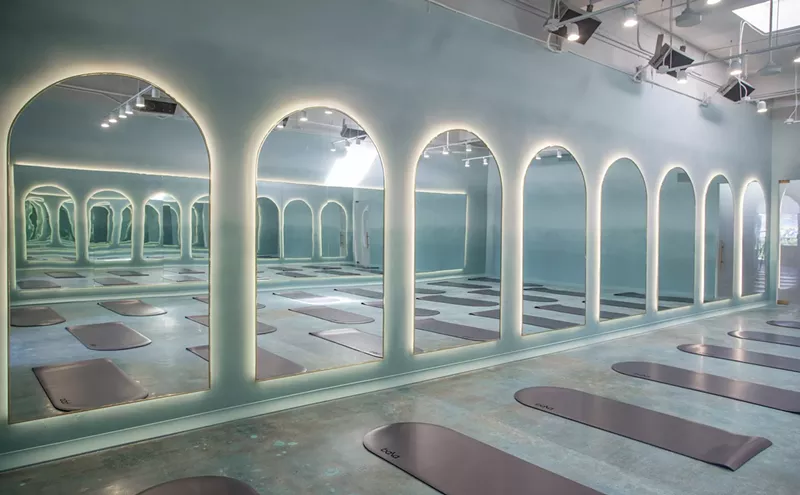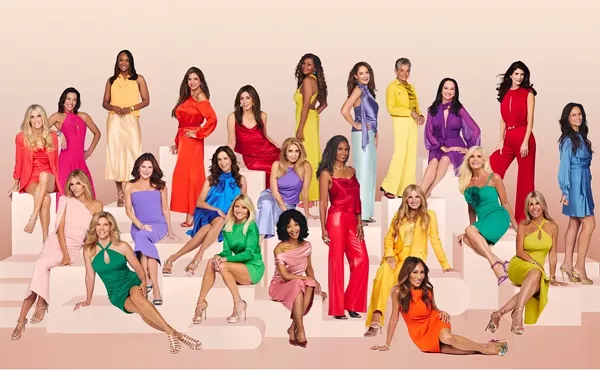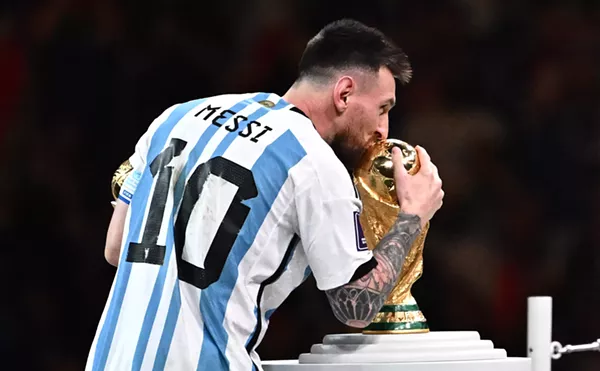Trapped indoors for nearly 12 months, terrorized by the maskless hordes and horrified by the government's mishandling of the pandemic, you sort of run out of stuff to watch.
But in the age of endless mediocre content creation, one can never actually run out of stuff to watch. Instead, you start to ask yourself whether there's anything you haven’t watched that people seem to like. And that’s how you end up letting your friend convince you to watch dozens of seasons of Real Housewives in the space of a few months.
What, exactly, is the appeal of Real Housewives?
What isn’t?
There's something flat-out comforting about watching groups of women navigate their opulent surroundings, financial circumstances, racial and sexual politics, friendships, and — most important of all — their rivalries. In an age when we can’t drink ourselves silly and dance on a bar, these women are doing it for us on national television.
Each city brings something different to the long-running Bravo series, each cast offers unique dynamics. Real Housewives of Potomac offers franker discussions of race than any scripted series that tries to broach the subject, while Real Housewives of New York still manages to offer fresh drama with figures who've been around since the get-go. Even the newest series, Real Housewives of Salt Lake City, kicked off with a bang: a provocative cast of characters that (mostly) knows how to engage with each other and riff on their own.
And then there’s Real Housewives of Miami.
Though not the first Housewives franchise to shutter (that honor goes to D.C., which lasted only one season), it was one of the few that didn’t make it far. You’d think Miami would be ideal for a Real Housewives franchise — the level of insanity we see here from the upper class on a regular basis seems tailor-made for TV — but the series was canceled owing to low ratings.
On this marathon Housewives journey — five franchises down, four to go — Miami has proven the biggest slog of them all. Many a franchise’s first season is essentially spent setting up relationships and power dynamics, yet they manage to provide enough entertainment to be binge-worthy. By the time you hit the end-of-first-season reunion, you’ve invested enough in these characters to want more.
Not Miami, though.
One could accuse many Real Housewives cast members of being be out of touch — that lack of self-awareness, of course, is absolutely part of the fun. But Miami’s housewives range from uninteresting to outright cruel. Case in point: Larsa Pippen (who blessedly only lasted a season and referred to herself as “the most stable person” in the cast) and her primary narrative arc — complaining about not being able to find a nanny while proudly admitting that she antagonized every nanny she ever hired.
Even after the cast was almost entirely overhauled, bringing in bigger personalities — like Joanna Krupa and Lisa Hockstein, among others — who brought more spice to the mix, the series struggled to make any of them pop amid a long stretch of flat storytelling. Lea Black may have provided the most consistent entertainment, particularly when she invoiced a fellow housewife for attending her gala without buying a ticket — a moment that marked the first season's closest approach to actual drama. Black has just the right balance of sincerity and kookiness that makes for a compelling character.
For all the complaints one can make about Real Housewives of Miami (and there are many), one cast member is so compelling that she not only validated the existence of a Miami franchise but justified a spinoff of her very own: Marysol Patton’s irresistible mother, Elsa.
“She naturally becomes the center of attention because of her personality and the things that come out of her mouth,” Marysol explained in season one — and she’s absolutely right. Elsa is a delightfully camp character, and her relationship with her daughter makes for tender and amusing television throughout.
Despite all these women and their stories long behind us, Andy Cohen will be bringing a new season of Real Housewives of Miami to the streaming service Peacock.
But what's going to make this reboot better than the original? Though multiple housewives have noted they’d be open to returning, would having any of them back be worthwhile without solidifying a better production?
To be successful, Real Housewives of Miami must embrace the absurdity of the city — a hurdle the series never quite cleared in the past. If, as others have noted, Real Housewives exists as something of a living, breathing satirical work about the upper echelon, it needs to find individuals who can grow into characters.
On a daily basis, we encounter more than enough bland Cuban girls who went to private school and married rich. We need a handful who're willing to stir up some shit beyond drinking, partying, and getting catty over brunch. We need fewer conservative drag queens and more totally out-there social events. We need less focus on family and more development of actual friendships — and rivalries.
The real Miami is ridiculous. Why shouldn’t our Housewives franchise be ridiculous, too?

Audio By Carbonatix
[
{
"name": "GPT - Billboard - Slot Inline - Content - Labeled - No Desktop",
"component": "22004575",
"insertPoint": "2",
"requiredCountToDisplay": "2"
},{
"name": "STN Player - Float - Mobile Only ",
"component": "22595215",
"insertPoint": "2",
"requiredCountToDisplay": "2"
},{
"name": "Editor Picks",
"component": "17482312",
"insertPoint": "4",
"requiredCountToDisplay": "1"
},{
"name": "Inline Links",
"component": "18711090",
"insertPoint": "8th",
"startingPoint": 8,
"requiredCountToDisplay": "7",
"maxInsertions": 25
},{
"name": "GPT - 2x Rectangles Desktop, Tower on Mobile - Labeled",
"component": "23181625",
"insertPoint": "8th",
"startingPoint": 8,
"requiredCountToDisplay": "7",
"maxInsertions": 25
},{
"name": "Inline Links",
"component": "18711090",
"insertPoint": "8th",
"startingPoint": 12,
"requiredCountToDisplay": "11",
"maxInsertions": 25
},{
"name": "GPT - Leaderboard to Tower - Slot Auto-select - Labeled",
"component": "17720761",
"insertPoint": "8th",
"startingPoint": 12,
"requiredCountToDisplay": "11",
"maxInsertions": 25
}
]

